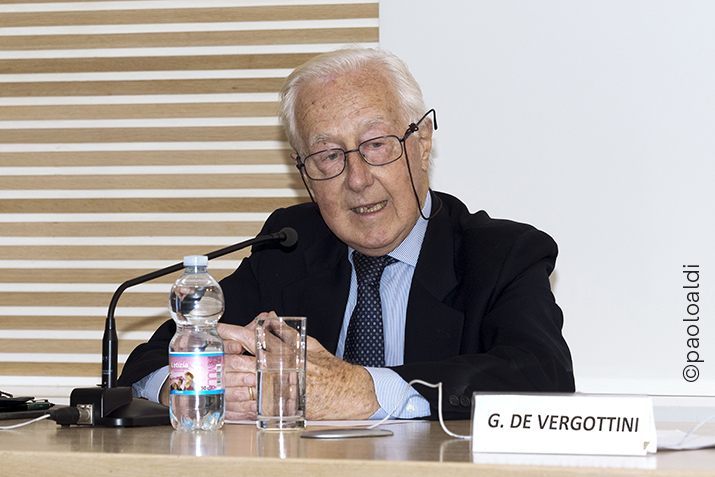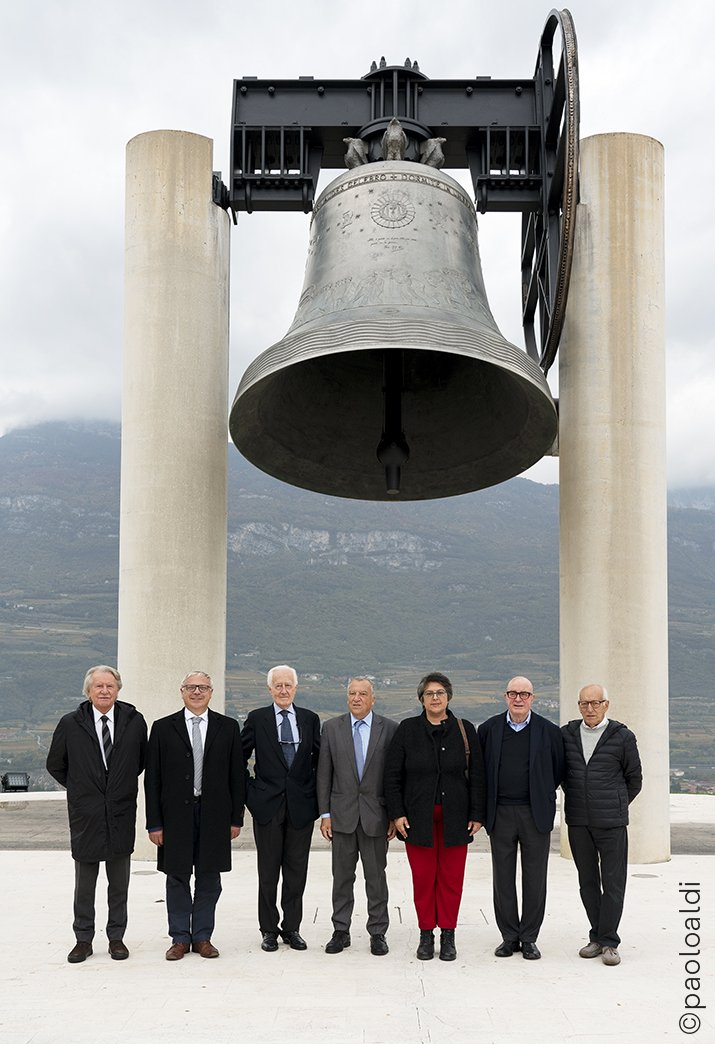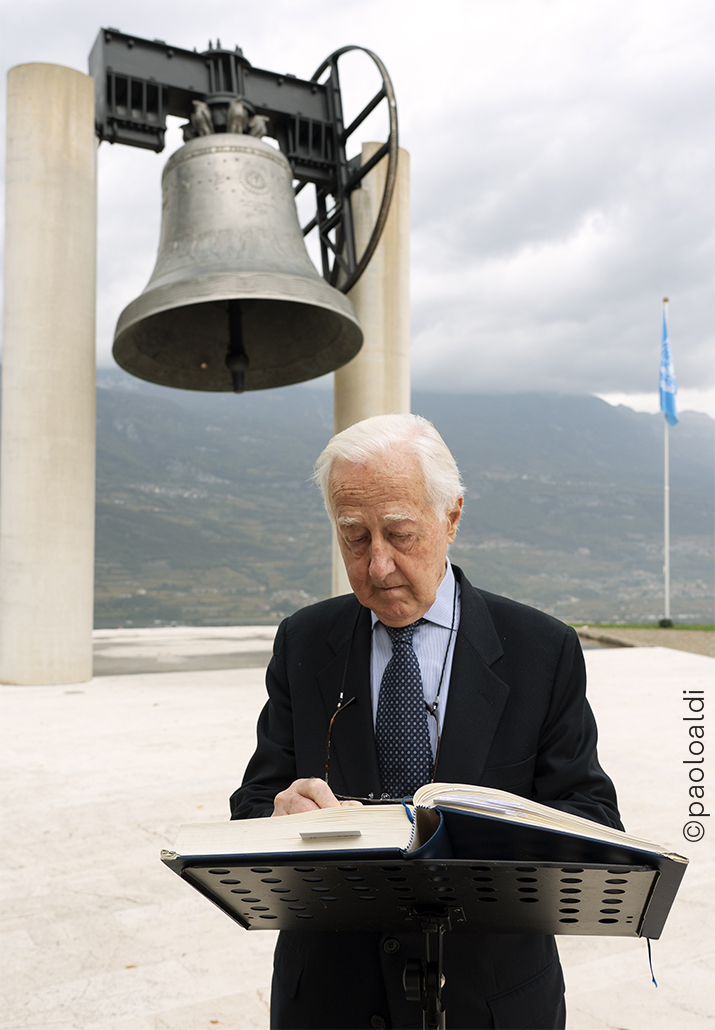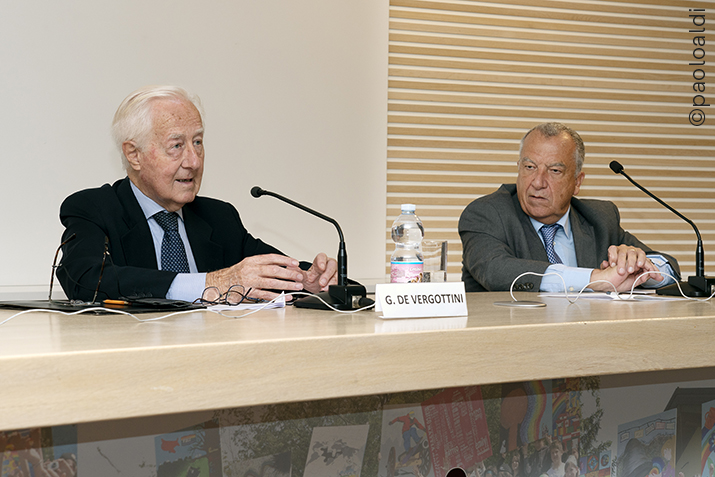SEMINAR AT THE BELL
UNITED NATIONS DAY
It takes experts to interpret laws. Not because each regulation is unclear in itself, even if sometimes the exposition could be improved, but above all because to interpret a law it is necessary to have an overall picture of the provisions governing a particular area. Sometimes, especially on matters that concern us all, there is the risk of confusion. Alas, all too often someone might attempt to drive a partial or imprecise vision to give strength to weak political positions which stray from procedure. Specifically, for the occasion of the United Nations Day, which is celebrated on 24 October, the Foundation entrusted the task of providing a complete picture of the regulations governing the direct or indirect participation of Italy in a conflict, with particular reference to support for the Ukrainian resistance against the Russian invasion, to Giuseppe de Vergottini, professor of constitutional law at his alma mater, the University of Bologna.
The expert, calmly and with caution, attempted to clarify the exact meaning of the cited article 11 of the Constitution, also in light of international law. «Let's start by recalling the constitutional clauses that affect war. These transpose international law and in particular Article 2, paragraph 4, of the United Nations Charter, which considers the threat and use of armed force as illicit both “against the territorial integrity or political independence of any State, or in any other manner inconsistent with the Purposes of the United Nations”», explained de Vergottini, emphasizing that «at the same time Article 51 of the Charter guarantees individual or collective self-defence as the inherent right of a member State to resist an armed attack».
By invading Ukraine, however, Moscow has not only violated the UN Charter, but also the so-called Budapest Memorandum, an international treaty signed in 1994, which in regulating the disposal of nuclear warheads from Ukraine to Russia, committed the Kremlin to respect independence and sovereignty within its borders at the time, to refrain from threatening or using military force or economic coercion to influence the policy of its neighbours and even to «urge immediate action by the Security Council of Nations United to provide assistance» in the event of an «armed attack» against the country.
Having clarified the international situation, the professor went on to analyse the position of Italy, noting that Article 11 of the Constitution contains two provisions. In the first we find the repudiation of war «as an instrument of offense against the freedom of other peoples and as a means of resolving international disputes». In the second, consent «on equal terms with other states, to the limitations of sovereignty necessary for an order that ensures peace and justice among nations». To this end, Italy «promotes and favours international organizations aimed at this purpose».
Professor de Vergottini clarifies the international and Italian legislation regulating support for the Ukrainian resistance
Usually, explained de Vergottini, «the focus is on the first part of the provision, but the rule must be read coordinating the two parts». It follows that the principle that must guide the action of the government of Rome is «the prohibition of an armed war and as a means of resolving disputes», but this «does not affect the principle of defence».
In specific cases, therefore, he concluded, «work towards an interpretation conforming to international law should be emphasized. This recognizes the right of individual and collective legitimate defence by allowing the armed intervention of third States to help the victim.
Article 11 of the Italian Constitution does not prohibit the use of force to assist a state that is counteracting an armed attack
The International Court of Justice, in the Nicaragua-United States case, affirmed that the principle of prohibition of the use of force, enshrined in Article 2 of the Charter, must be considered together with Article 51, allowing aid to a State subject to aggression by customary law».
International customary laws have constitutional rank. Therefore, what is dictated in Article 11 cannot be considered separately from the understanding of these customs. In other words, Article 11 does not prohibit the use of force to assist a state that is counteracting an armed attack. Thus, limiting ourselves to assessing the assistance given to the parties under attack by sending weapons, appears to be in accordance with international law and therefore not contrary to the Constitution.

Professor Giuseppe de Vergottini during his speech


Professor Giuseppe de Vergottini signs the Book of Honor

Professor Giuseppe de Vergottini and Reggente Marco Marsilli during the event






